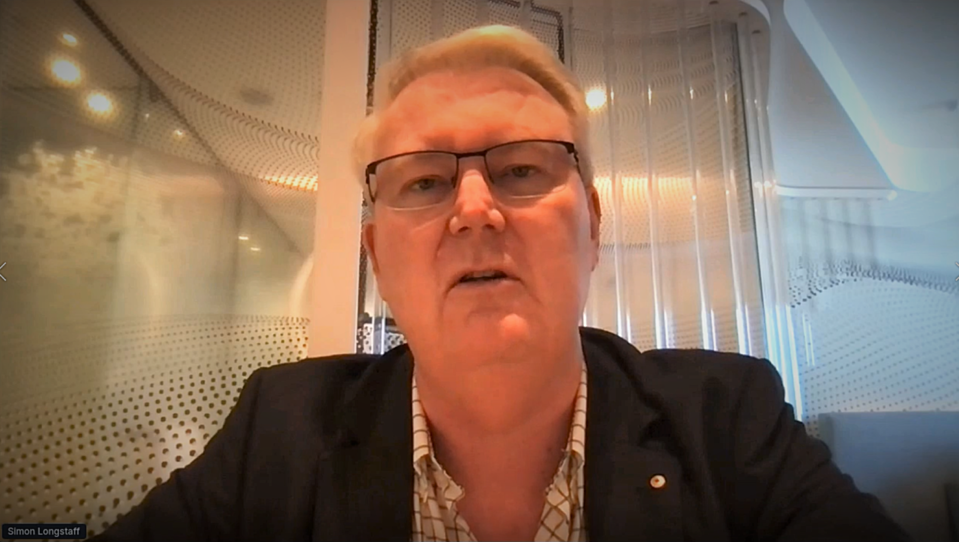Dear grantmaker, you’ve changed. Here’s how we can repair our relationship
Posted on 31 Mar 2021
By Joshua Presser, director of special projects, SmartyGrants
The push for charities to be more “business-like” has damaged the relationship between funders and grantseekers, an outspoken grant recipient has told the 2021 Grantmaking Intelligence Conference.
Chuck Berger is manager of Kimberley Community Legal Services, which provides legal and family support services across six towns and a dozen remote Aboriginal communities in the Kimberley region of Western Australia.
Speaking from Australia’s remote northwest, Mr Berger told the March 18 event that some of the most important work of not-for-profit and charities was antithetical to a business mindset.
He said too great an emphasis on efficiency, outcomes and innovation could lead to charities “losing something fundamental along the way”.
Organisational efficiency was important but squeezing budgets through “efficiency dividends” was creating a constant sense of pressure for not-for profits, he said.
“What people really need is time and care over a period of time, which is inherently inefficient,” he said.
Mr Berger acknowledged the value of outcomes measurement but cautioned that not everything of value could be distilled into metrics or data. He stressed that outcomes and impact may not be evident in the short to medium term, and certainly not within a grant reporting cycle.
While money was available for innovation work, those funds could drive charities to try new and untested approaches, when what was often needed was funding to scale up proven initiatives.
“What we’re at risk of doing, as we become more business-like, is actually devaluing the things that cannot be made more efficient, or innovative, or where outcomes are complex and ambiguous,” Mr Berger said.

“Some of the most important work that we do will never go viral, will never have economies of scale, cannot be done by toolkit or online video, and it is always going to be resource intensive.”
Mr Berger had three suggestions for grantmakers wanting to do things differently.
Come visit, talk to us and see what we do
“The first thing I want is the understanding that can only come about by spending time. I really want people to come and see the work we do and see the communities that we work in and to be able to spend some time up here. That’s what’s really valuable and sets the foundation for a really open and honest conversation,” he said.
No More Humbug is a community animation illustrating the negative effects of financial abuse of Aboriginal elders. It's just one of the many projects at Kimberley Community Legal Services.
Make reporting meaningful
There was nothing more frustrating than collecting data and writing up case studies “but never really having a sense that it lands somewhere,” Mr Berger said.
“I love the dialogue that’s around that data and the actual conversation that it can open up, rather than just ‘are you hitting your targets, or are you not’?”
Create a clear pathway for innovation funding
“So often we see an innovation round that gets a positive review and maybe even it becomes embedded as a permanent funding stream for your organisation, but it doesn’t get rolled out generally,” Mr Berger said.
“So you get an innovation round which winds up in a permanent twilight zone of pilot projects that aren’t really pilot programs anymore. If this is a good idea, and it’s being funded, why can’t we make this a permanent part of the service delivery landscape across the state or across the nation?” he said.
















Gallery pictures (L-R): SmartyGrants founder Denis Moriarty; Our Community director of innovation Sarah Barker; Innovation Lab data scientist; Nathan Mifsud; Conference facilitators Barry Smith and Fiona Dempster; Australian Small Business and Family Enterprise Ombudsman Craig Latham; Chuck Berger of Kimberley Community Legal Service; “Return to purpose” and “Big issues” panels hosted by Our Community chaos controller Kathy Richardson, State/Federal Muster host and SmartyGrants special projects director Joshua Presser; Teena Blewitt from the Department of Social Services; Chris Wheeler, consultant and former deputy NSW ombudsman; Dr Simon Longstaff from the Ethics Centre; SmartyGrants leaders in the “behind the curtain” session; Jeremy Kelshaw from the City of Sydney; Top conference contributor aka “Top Banana” Emily Costello; Presenters in the “Quick-fire grants” session and Local Government Muster host Jodie Shanks.